
How Marcus Holloway Rejects One-Dimensional Blackness
Of Grand Theft Auto V’s three playable characters, Franklin was far and away my favorite to play. For all the hijinks, mayhem and hell I raised across the greater Los Santos area, Franklin was there to see me through. Of course, the game’s narrative requires you to switch around here and there, since some missions can only be accessed via specific characters. This is also why Franklin was the most frustrating.
Given the chance, I tend to model in game characters after myself as much as possible. In the world of GTA V, Franklin’s wardrobe is the easiest to work with. I’ve played through the story three or four times by now, and each time I make sure to go buy clothes as soon as possible. I put Franklin in a black t-shirt, a black jacket, black skinny jeans and black Timbs, for a rugged, timeless lookIt’s not the most creative wardrobe, to be sure, but it’s mine. And excepting my peculiar taste in color –or lack thereof,–it’s a common enough look amongst plenty of Black Americans. Franklin, to my endless chagrin, disagrees.
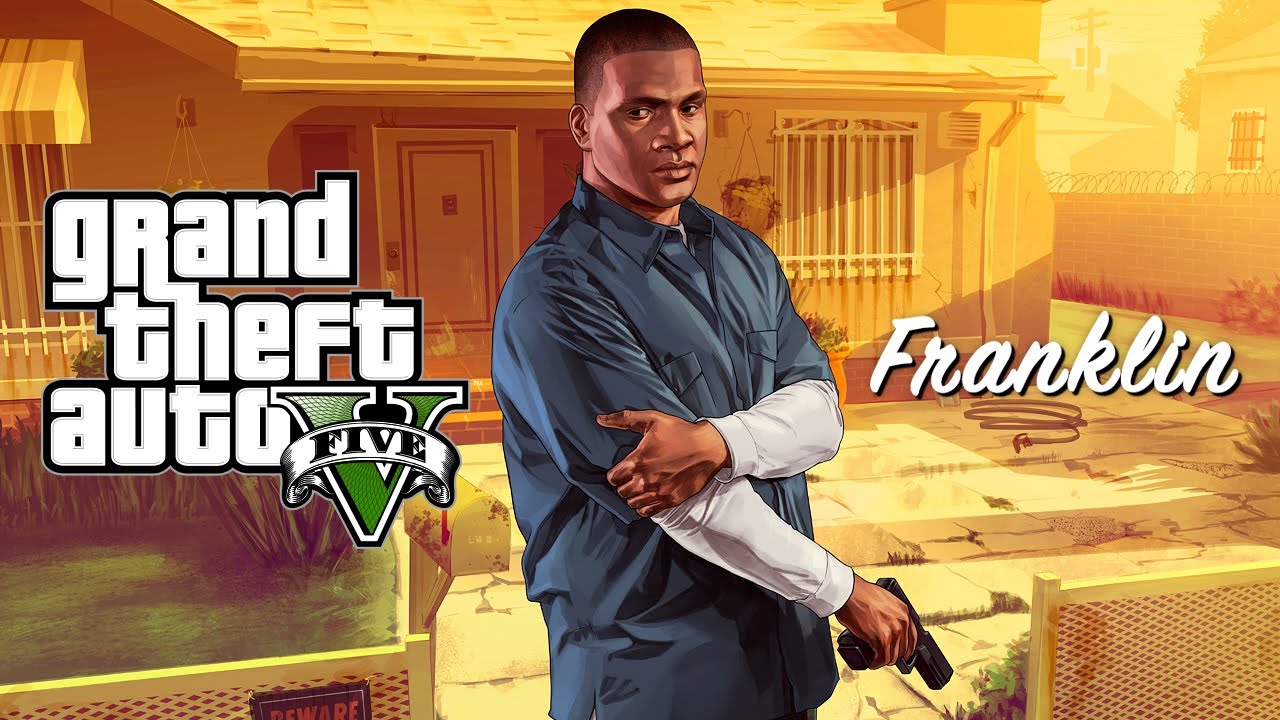
Every time I switched over from Michael or Trevor, Franklin had changed his clothes. Somewhere behind the scenes, when I wasn’t looking, Franklin snuck away to throw on his signature baggy shorts and oversized t-shirt, leaving me to drive home, head to my closet and start all over again. I’d point at the mirror, trying to show him.
“Look,” I said, “We look good. That’s us.”
But every time I left Franklin alone, he’d change right back, breaking the game’s fourth wall only to tell me I was wrong.
“This is us.”
Maybe he was right. Maybe he was playing dress up. Maybe I am too.
The problem with representation is that too often it gets the picture wrong. Representation’s sole task is to accurately and appropriately represent its given subject. Franklin didn’t represent me at all. He represented some Blacks, maybe even a significant portion. But his insistence on his wardrobe over my own — to be fair, a problem universal to the game’s protagonists — only salted the wound. Franklin wasn’t so much representing Blackness as he was perpetuating his version of Blackness back onto me.
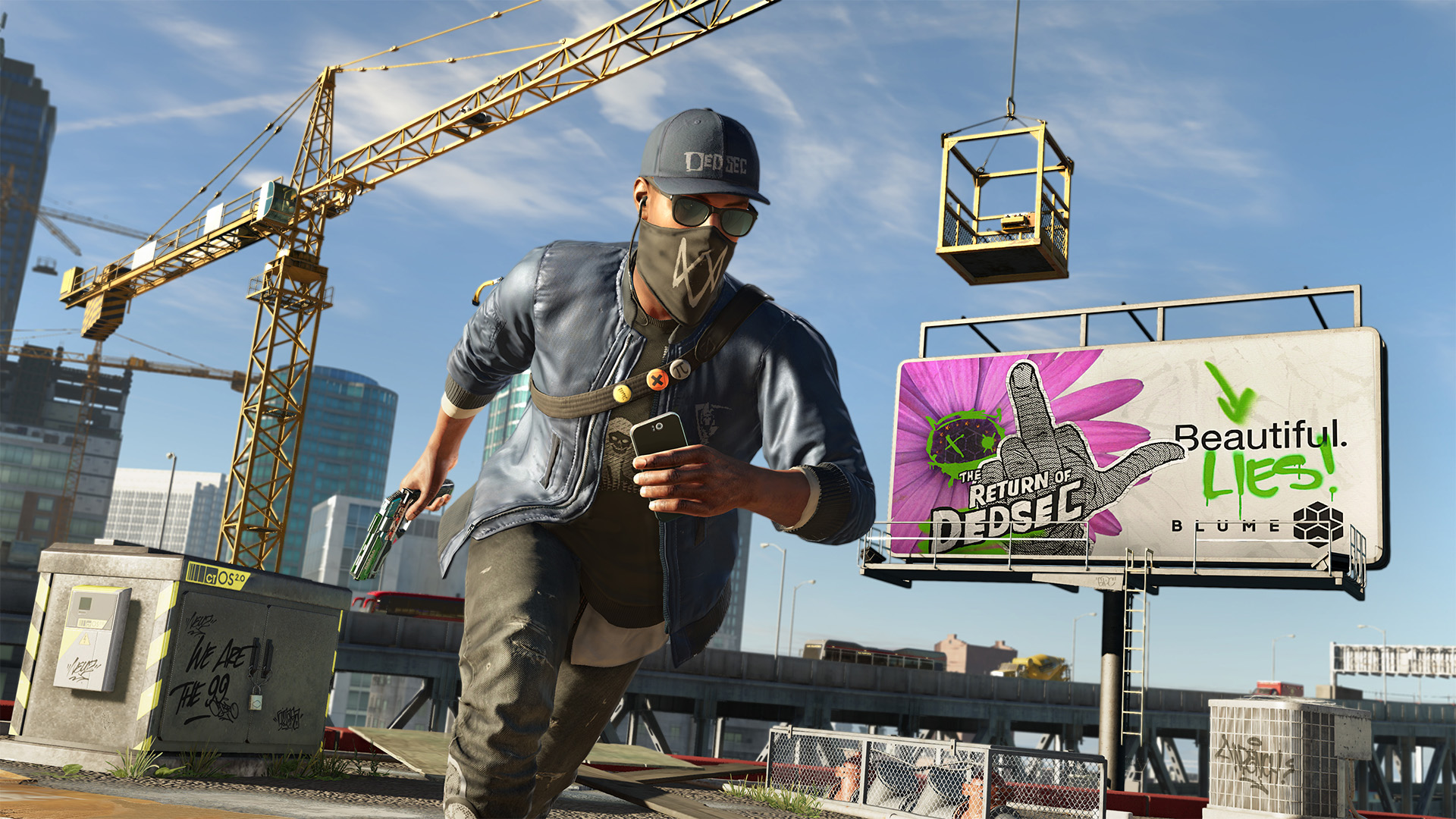
Shift gears to Ubisoft’s Watch Dogs 2. This game was a gem for countless reasons:its lighthearted story, smoothed and polished hacking system, varied and compelling mission design, the list goes on. But nothing impressed me more than its star, Marcus Holloway.
Black characters are few and far between in video games, and well written Black characters? A rare, precious commodity. GTA’s Franklin is an example of so much that is wrong with Black characters in games. He’s dull, trite and heartily stereotypical. Marcus Holloway stands diametrically opposed to this sort of sloppy racial inclusion.
Blackness as Identity:
Franklin is not an uncredible or unbelievable character. His arc is reasonable, his personality realistic. But beyond these most minimal praises, plainly put, Franklin sucks ass.
He’s downright boring. No matter how you slice it, he has precisely one motivation throughout the game: to get out of the hood. Sure, there may be other factors involved. He may want to get Tanisha away from that “brain surgeon, lawyer she fuckin’ with,” to put his gang back on the map. But really, he’s only after wealth and the position it brings. For Franklin, being broke is ultimately the one thing holding him back from getting away from his life on the streets and, consequently, Lamar.
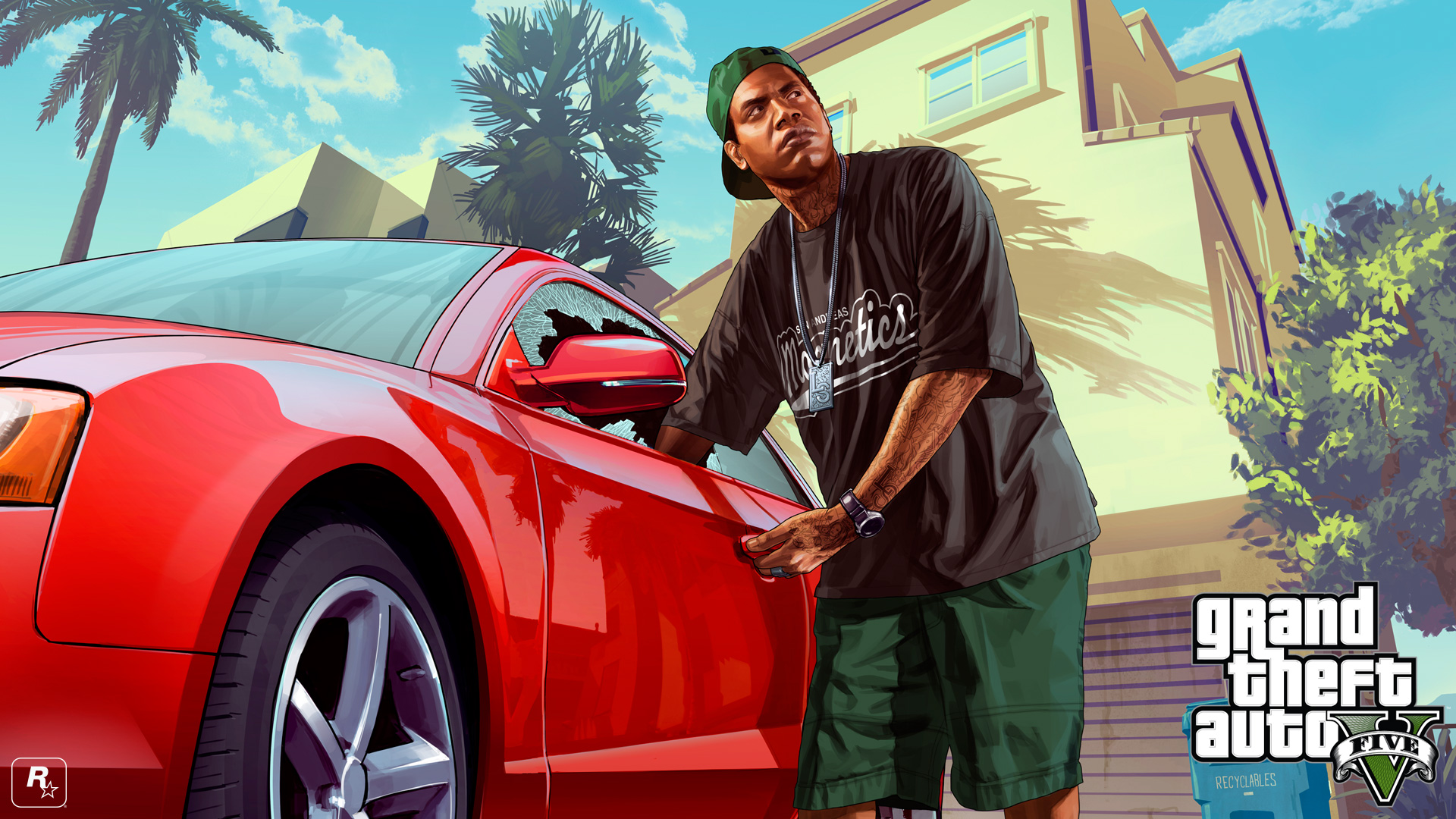
Lamar accents and complicates Franklin’s life in plenty of ways, but is chiefly used as a narrative tool to add conflict as Franklin’s bad influence. He’s the rootinest, tootinest, gangbanginest son of a bitch on the wild west coast, and he simply can’t seem to stop roping Franklin into his god-awful schemes. Thus, Lamar plays a vital role in Franklin’s boring ass story by ensuring it’s hard for Franklin to move forward. Lamar is representative of the hood Franklin can’t seem to get away from, and we eventually see Franklin wisen up and add some distance.
Franklin’s tried and true “Get out of the hood” story has been written and rewritten to death. We all know that story; we’ve seen that story scores of times. The optimist in me can admit the story’s as pervasive as it is because, for plenty of Black Americans, it’s a legitimate one. Plenty of Blacks really are working or have worked to get themselves out of the hood, whatever or wherever that may entail.
That doesn’t help Franklin in the slightest. It doesn’t matter if the story’s a realistic one, a true one or a reasonable one because, as any Black American knows, it’s not the only one. Somehow in spite of this, the story keeps showing up. Black characters are still gang members and thieves and burglars, still motivated by the same vainglorious tall tale of greener grass north of Los Santos, still Franklin and Lamar. I’m tired of that story.
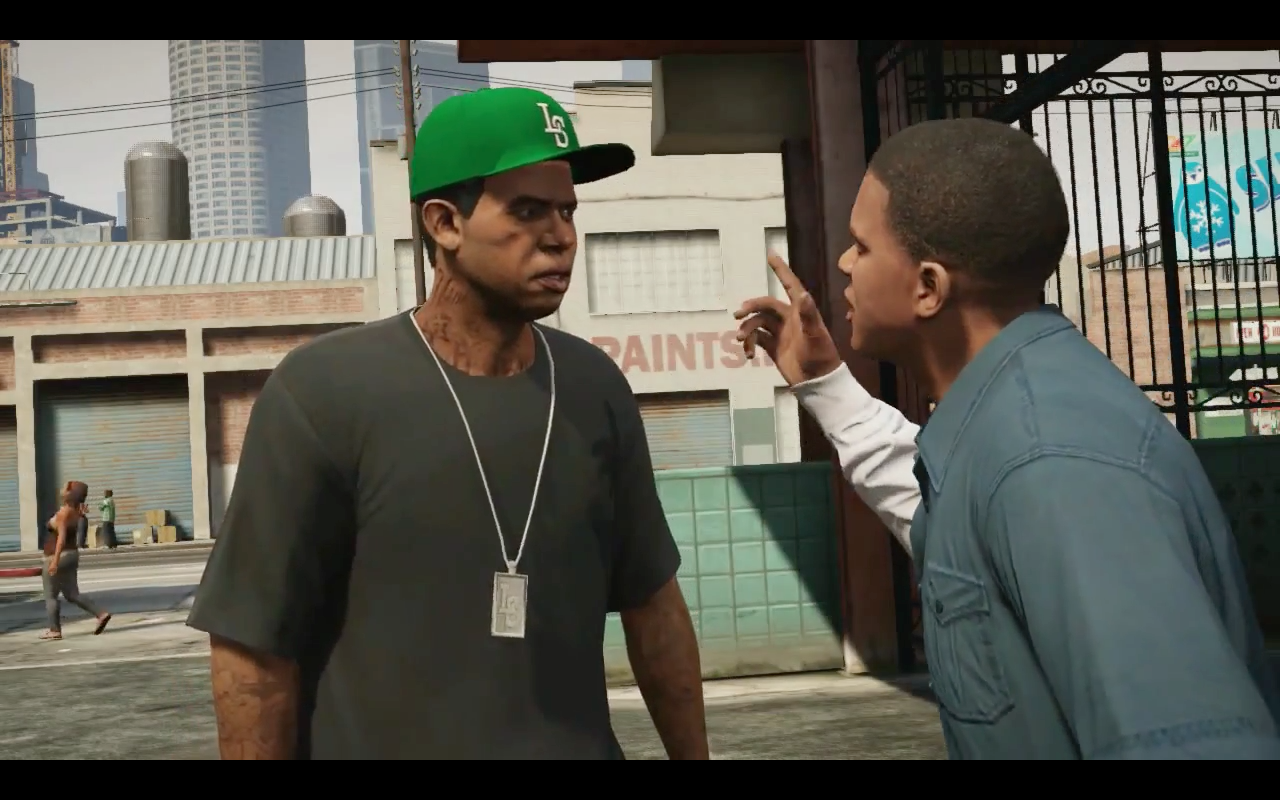
Franklin’s perpetuation of it only further reinforces the superimposed idea that Blackness is simple and one dimensional. By Franklin’s standards, Blackness is nothing more or less than that struggle — it’s thus that Franklin’s character ultimately amounts to blatant redundancy. He may count as representation to some extent, so far as his narrative is plausible, but given the antiquity of the plot rendered him, he leaves countless Black Americans out in the process.
Lamar actually helps show everything wrong with Franklin’s story simply by sharing so many of Franklin’s problems. Lamar suffers from the same troped version of Blackness as Franklin; he matches Franklin’s simplicity and uninspiredness as far as his character arc goes, and both have boring motivations and fit the same stereotypical mold.
But there’s a critical catch — while Franklin’s character vies to be taken genuinely, Lamar emphatically rejects whatever sincerity we might impose on him. In doing this while simultaneously matching Franklin’s version of Blackness blow for blow, Lamar’s Blackness satirizes Franklin’s. This is what makes him such a phenomenal character in spite of how plainly dull he is. Simply through their shared condition, Lamar criticizes Franklin’s careless mundanity.
Intersections:
It’s the responsibility of the writer to create a character who accurately and adequately represents the appropriate group. If that’s not done, whatever’s happening is qualitatively and invariably not representation. When characters like Franklin take to the screen, Black America hasn’t been represented, but caricatured.
This is what makes Marcus Holloway such a breath of fresh air. He’s not only a well written character, but a well written Black character in all of the nuances such a thing requires. When he meets Horatio, he hugs him exactly the way I greet my Black uncles. He employs subtle codeswitching, changing his language and mannerisms depending on who’s in the room. Even his wardrobe, varied though it is, simply screams of Blackness — did anyone else manage to find the GrillGod 16’s in game?
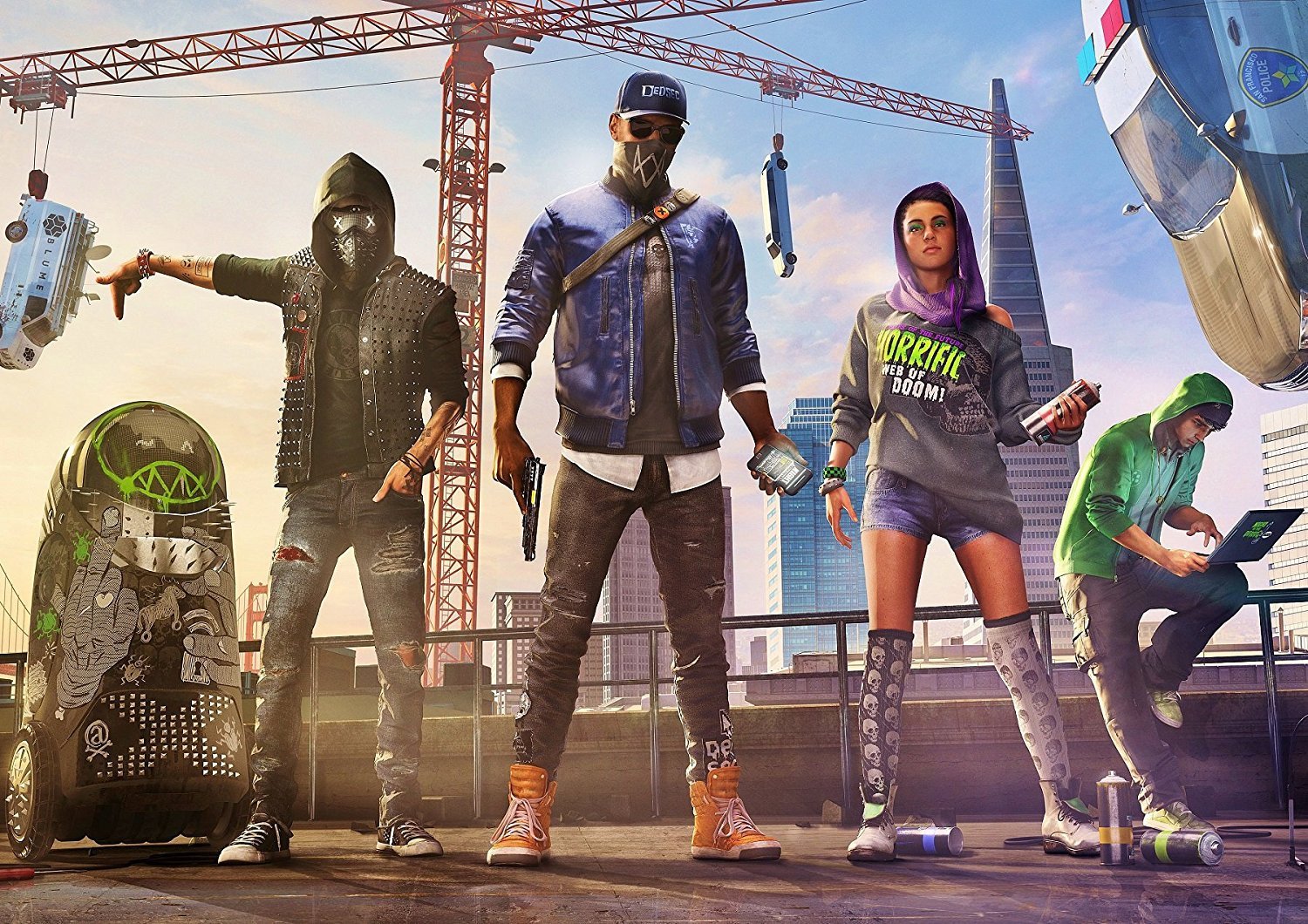
What’s so fantastic about Marcus, though, is the fact that he is decidedly more than Black. James Ham, Senior Animator at Insomniac, hit the nail on the head when talking about developing Miles Morales: “Representation does matter. And it’s not just about him being a Black superhero — it’s about him being a superhero that happens to be Black.”Marcus’s Blackness is complex and thoughtfully made. He loves needlessly Bay-esque action flicks. He and his DedSec crew use a board game store as their homebase. He wears laughably hipster glasses. And it’s these things, coupled with the fact that he’s unquestionably Black, that make him so special.
Marcus isn’t a white person in blackface or a Franklin in hacker’s clothing, but a Black character with a thoughtful understanding that Blackness isn’t as simple as Rockstar would have us believe. And more than that, he actually mirrors plenty of Black gamers who pick up the game. Not all of us, to be certain — but with countless Franklins on the table, Marcus expands veritable representation in the industry.
The Broader Picture:
Contrary to an all too common narrative, allow me to suggest Blackness is always coincidental to a person. It’s a quality, not an identity. I can be Black first; I can prioritize my Blackness above those other qualities inherent to me. But I will always be a Black person.
The mundanity and stereotype perpetuated by Franklin is a problem, to be sure, but in fact it’s only a symptom. The true disease is essential Blackness, where Blackness is mistaken for or purported to be a personality.And this problem is far wider than games. People try to substitute characteristics for personalities all the time, but they’re rarely interesting or compelling. Think of that friend who won’t stop telling you about his trip to Europe or who defines himself by his music. They don’t feel like people; they feel like plastic.

Characteristics must always be acknowledged for what they are rather than inflated and used for identity. It doesn’t matter how critical or central they are. Characteristics alone simply can’t be asked to give you, me, or video game characters substance — it’s unfair and, as countless examples have shown, offensive to do as much. Understanding characteristics as coincidental to personhood is the more coherent and consistent route.
Marcus’s Blackness is special because it’s just that — coincidental. Blackness is without a doubt important to me and every Black person I know, and I can’t think of any who wouldn’t give it some sort of precedence amongst those other things that make them who they are. But Blackness in the world and on screen have to be treated differently.
To be clear, Blackness is immeasurable, invariable and pervasive, and it’s ultimately up to the individual to understand what that entails. It’s because of this that people like both Franklin and Marcus can exist in the real world, and the idea of one being “more” Black than the other would be incoherent nonsense.
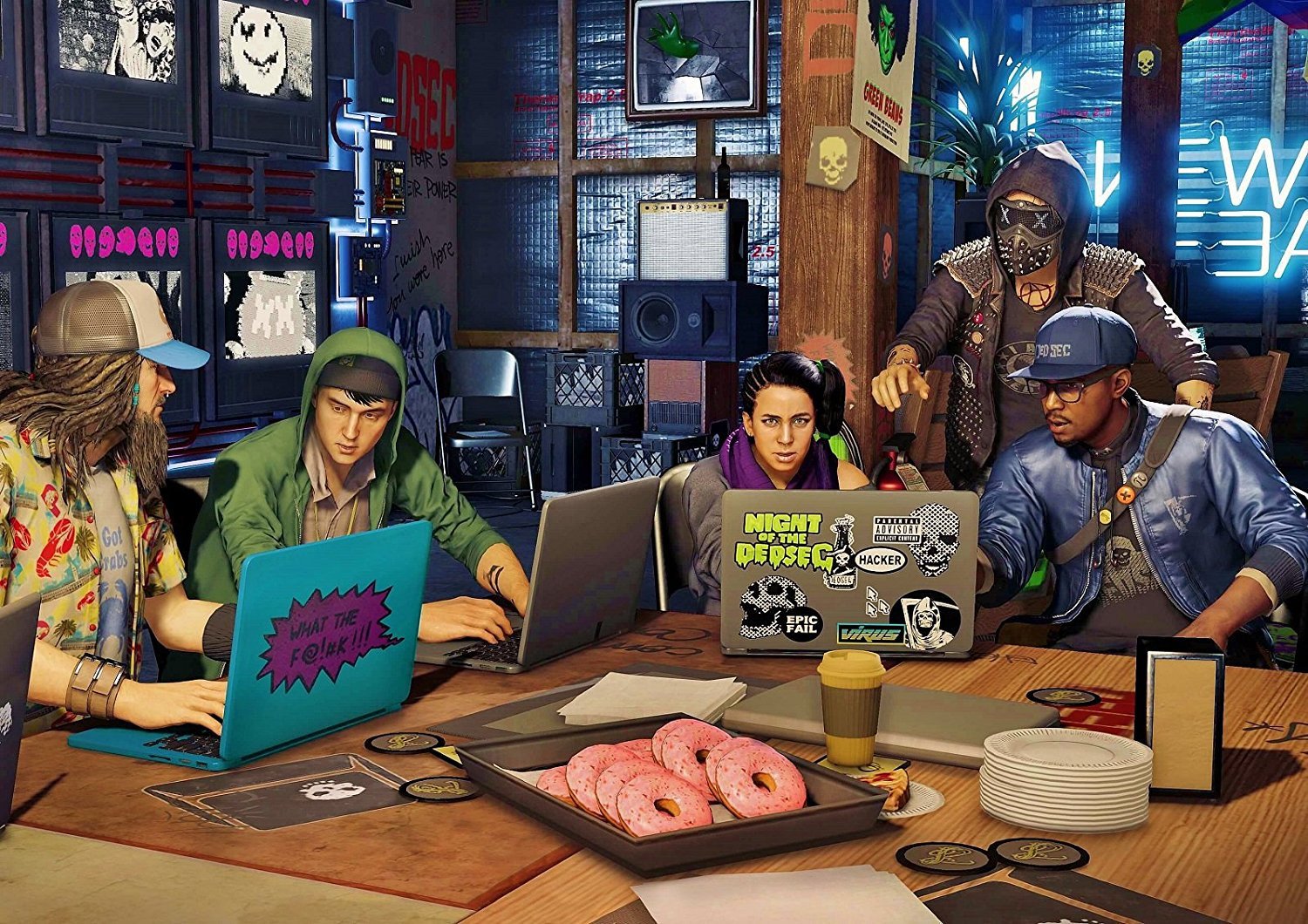
That said, Franklin and Marcus are fictional characters, and they get held to a different standard. Someone sat down and created them, decided what they should be like why, and that means the rules are different. In real life, Blackness is rightfully beyond question by nature; characters can be awarded no such luxury.
Blackness is an attitude, style, and skin color. My Black ass dad is currently earning his third Master’s degree, and he dresses a lot like Franklin. My Black ass cousin is a videographer, and he loves a good trap beat. My Black ass friend produces and raps over his tracks, and he studies theology. And my Black ass wrote all this down in the hope that you’ll get something from it.





